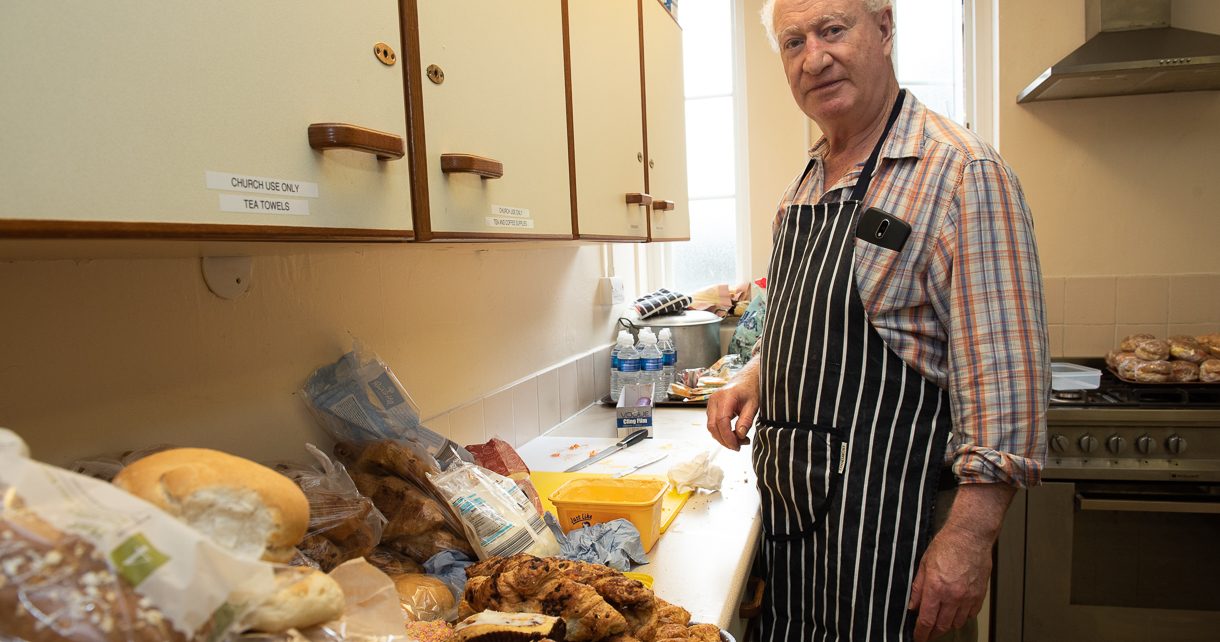Before it’s too late
Veteran anti-austerity campaigner and author Harry Leslie Smith speaks exclusively to UNITElive, following his address to a packed crowd at the University of Manchester NoVoteNoVoice event last week (March 11).
It was the summer of 1945 and Harry Leslie Smith, then only 22, cast his first ballot in a general election. The Second World War, which had killed half a million of his fellow countrymen and left millions more maimed, penniless and without any social support, had just ended.
While many of us face election season with a certain here-we-go-again weariness, the electorate after the War was electrified by the possibility of building a new future.
“You have to understand that the vast majority of us in the armed services came from the lower classes,” says Smith, a RAF veteran from Yorkshire who had before the war known only poverty. “We didn’t have much choice on whether we’d go fight or not. For us, it was just the thing to do for your country.”
“We’d come back from the war having experienced ferocious fighting and bloodshed, and before the war we’d known only want and hunger,” he explained. “It was in everyone’s mind that we were not going to go back to what we had experienced in life before the war. We were positive that we were going to change the whole system.”
Smith says that he and his peers were lucky to have the choice of a strong Labour leader, Clement Attlee, who promised the country a new future, one with a state-funded health care system, plentiful council housing and a cradle-to-grave welfare state.
“When the time came for the election, we were really a rowdy bunch. We were singing and dancing and having a beer or two. We talked about what it was going to be like in England, that we’d finished with the hard life we’d all experienced.”
With the support of millions of armed servicemen and women, all speaking with one voice, Attlee won by a landslide, and the rest, as they say, is history.
“We weren’t sure if we’d get what we wanted. But sure enough, we did, and life was good.”
“Before it’s too late”
If there’s anyone who can attest to the value of voting, it’s Smith, who has experienced first-hand the connection between the personal and political – that voting can, in fact, change your life.
While millions up and down the country may feel disillusioned with politics and reluctant to turn up to the ballot box, Smith believes that as May approaches, there has never been more at stake since that fateful election nearly 70 years ago.
“This will be the only opportunity to turn things around before it’s too late,” he said. “Too many people are suffering today in the country. They’re being ignored because of the mere fact that they’re poor, and no one’s listening to them. Austerity has cut their lifestyles, when they’re living standards should have been increasing.
“Even the Cameron government itself, just before an election, is saying that its austerity policies have only just begun, that there’s going to be more.
“If that happens,” Smith warns, “there will be people starving in the streets. There will be children rummaging for food in the bins behind restaurants, just like it was back in my day. This is what will happen.”
Smith argues we can avoid this fate if working people, those who’ve borne the brunt of austerity, let their voice be heard in the same way working people did in 1945 – by throwing their support behind a single party with a strong leader.
“I’ve spoken to Ed Miliband a few times, and I think he has the right character,” Smith said. “If he wanted to be, he can be the strongest leader in England, provided that he keeps on track with what working people need and never forgets it.
Smith points to David Cameron, who, he says, is simply too out of touch with working people to understand what their concerns are.
“The only contact that Cameron gets with the general public is when someone is serving him his tea,” he said. “Still, he pretends to know what the people need. But this is not a game of pretend. It’s about actions and decisions being made to benefit not just one group, but the whole of society.
“I know I’m not a historian, but at 92, I am history, and I fear its repetition,” he adds, worrying about a return to the days when he was forced to labour at the age seven to support his family.
“Maybe this is the curse or price of advanced age – to witness a timid present unable to face its future and its past mistakes.”
Still, there was nothing timid about the hundreds of young people who came to hear Smith speak at the University of Manchester. It’s in these young voters — who Smith believes are just as engaged and hungry for change as his generation in 1945 – that he places much of his hope.
“Some call my generation the greatest generation,” he told the students, many of whom were clutching copies of Smith’s book, Harry’s Last Stand, about the importance of protecting the welfare state.
“But I think your generation will be the greatest, because you will finish the job that my generation started.”
 Like
Like Follow
Follow


